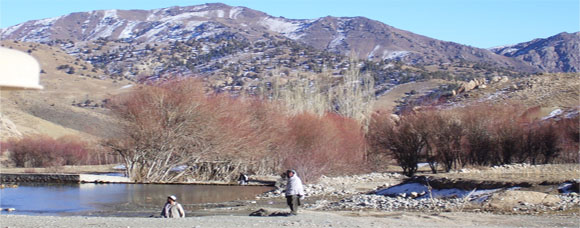November 8, 2007 -
The Morning Call
The potential for mayhem
and murder after a premature pullout from Iraq has been compared
to what actually happened after Vietnam.
Those writing about
America's (in actuality, it was the Democratic-led U.S. Congress)
cut off of all support for her Vietnamese allies as the Soviet-backed
North readied to invade the South, describe the resulting horrors
of re-education, boat people and Cambodia. But there was also
a decade of death and destruction in Central America which followed
in the late 1970s and 1980s initiated by Soviet-Cuban backed so-called
national liberation movements. Led by long-time Stalinist, Tomas
Borge, communists calling themselves Sandinistas took over Nicaragua
in 1979 and El Salvador was standing on the brink of the abyss
in late 1980 when Ronald Reagan was elected. Honduras and Guatemala
were next. While this monumental struggle for our southern neighbors
was taking place, Democratic leadership in Congress fought President
Reagan and his policies and turned a blind eye to Soviet and Cuban-backed
communists undermining nearby Latin America.
The Iran-Contra fiasco,
an ugly and debilitating sidebar to the vast historical forces
in motion in the hemisphere, was an outgrowth of the inability
of Reagan to convince congressional Democrats of the seriousness
of the takeover of Nicaragua and the Soviet-Cuban role in usurping
the rest of Central America.
Not able to secure
Congress' approval for continued funding of the opposition to
the Sandinistas, the so-called Contra resistance fighters (who
were fielded initially by the CIA), a wild and probably illegal
scheme was cooked up in the basement of the White House. People
who on their own or with the tacit approval of possibly Reagan
himself, or certainly those close to him, decided that they, personally
and against the legislated dictate of Congress banning aid, would
nevertheless act covertly. They felt they could not permit the
betrayal of those 35,000 or so individuals, largely Miskito Indians
from the eastern coastal regions, who had stood up with our support
to fight the communists. This White House contingent was mainly
Vietnam War veterans committed to avoiding another betrayal of
our friends and a victory for the communists. Arms sales to Iran
of ''donated'' weapons constituted the chosen route for cash for
Contra weapons and supplies. In the end it failed.
When uncovered, the
public relations and legal disaster for the Reagan administration
led to disaster in the field of battle and solidification of Communist
power in Nicaragua. That power unraveled only with the fall of
the Soviet Union when Nicaragua, like so many other Soviet clients,
lost their source of funds, advisers and weapons.
Now, some of the very
same people in Congress who could not recognize the real enemy
in Central America and pulled the rug out from under our allies
in Vietnam, are leading the charge to cut off funding for American
troops supporting our Iraqi allies. They argue our allies are
imperfect, cannot or will not conform to our arbitrary self-help
timetable and are thus unworthy of our support and sacrifice.
Vietnam, Central America
and now Iraq: One thing you can say about the Democratic Party's
leadership in the Congress: They have been consistent.
In 1979, after President
Carter abandoned our long-time allies in Iran to dangerous Islamic
fanatics, the Soviets, sensing the palpable weaknesses of President
Carter and the Democratic Congress, invaded Afghanistan before
the year was out. That action set off a horrendous series of events
that we are still struggling with today and will be for a long
time to come.
It all started with
Congress' abandonment of our allies in Vietnam, then Central America,
then Carter's precipitous severing of ties with our allies in
Iran. Fast forward to the war in Iraq and we see history repeating
itself. Can anyone imagine the world today had Jimmy Carter defeated
Ronald Reagan for the presidency and leader of the free world
in 1980?
Here's the real question:
Are Democrats in Congress and a putative Democratic president
willing to risk a post-Iraq debacle akin to that which followed
Vietnam but conceivably far worse, in order to score electoral
points in 2008? So far, the simple answer is, yes.
Don Ritter served as
the Republican congressman representing the Lehigh Valley's 15th
Congressional District from 1979 until 1993. He is the senior
adviser of the Afghan International Chamber of Commerce based
in Washington, D.C., and serves on its executive committee.



